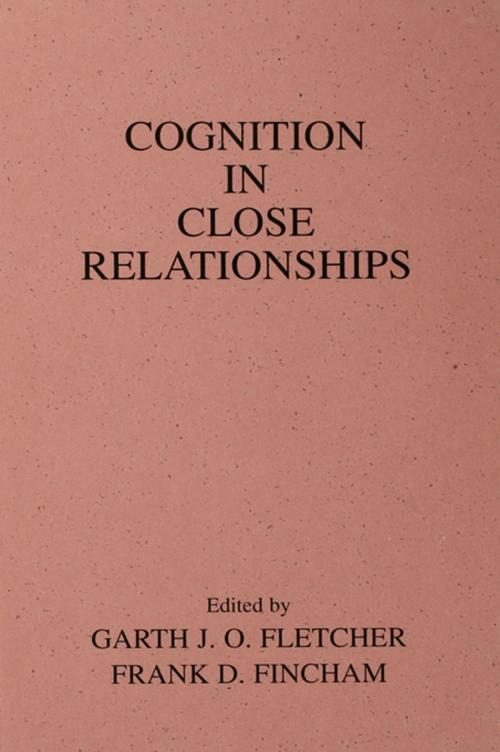| Author: | ISBN: | 9781134753970 | |
| Publisher: | Taylor and Francis | Publication: | May 13, 2013 |
| Imprint: | Psychology Press | Language: | English |
| Author: | |
| ISBN: | 9781134753970 |
| Publisher: | Taylor and Francis |
| Publication: | May 13, 2013 |
| Imprint: | Psychology Press |
| Language: | English |
The past decade has witnessed an explosion of interest and research on close relationships and social cognition. In both areas, numerous handbooks, textbooks, and journal articles have been published. However, it is the editors' impression that although cognitive theories and concepts have filtered through to research dealing with close relationships, much of this research reflects a relatively untutored understanding of the theoretical and empirical work in social cognition. Conversely, the research literature that provides a more sophisticated perspective on the role of cognition in close relationships typically reveals a relatively limited knowledge of the literature on close relationships.
As researchers who have worked in both social cognitive processes and close relationships, Fletcher and Fincham are convinced that each field has much to offer the other. In fact, their book is based on two important postulates: first, that a social cognitive framework offers a valuable resource for developing our understanding of close relationships; and, second, that studying cognition within close relationships has the potential to inform our understanding of basic social cognitive processes.
The past decade has witnessed an explosion of interest and research on close relationships and social cognition. In both areas, numerous handbooks, textbooks, and journal articles have been published. However, it is the editors' impression that although cognitive theories and concepts have filtered through to research dealing with close relationships, much of this research reflects a relatively untutored understanding of the theoretical and empirical work in social cognition. Conversely, the research literature that provides a more sophisticated perspective on the role of cognition in close relationships typically reveals a relatively limited knowledge of the literature on close relationships.
As researchers who have worked in both social cognitive processes and close relationships, Fletcher and Fincham are convinced that each field has much to offer the other. In fact, their book is based on two important postulates: first, that a social cognitive framework offers a valuable resource for developing our understanding of close relationships; and, second, that studying cognition within close relationships has the potential to inform our understanding of basic social cognitive processes.















